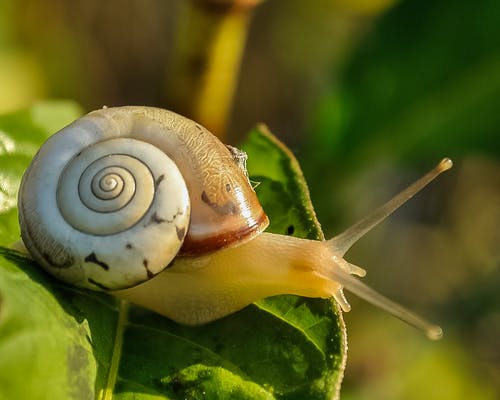In 2007, Rosemary Odinga, the daughter of former Prime Minister Raila Odinga was the only snail farmer licensed by the Kenya Wildlife Service (KWS) to raise the slimy creatures. However, the venture has been on the rise among Kenyan farmers due to increasing demand brought about by the influx of West African and Asian nationals into the country who find snails a common delicacy.
According to a recent report from the United Nation’s trade and development arm, UNCTAD, Kenya has among the largest number of immigrants across African nations due to the country’s diversified economy that attracts labour from other regions and continents.
Many of the immigrants come from West Africa, from countries such as Ghana, Cameroon, Nigeria, Senegal, Sierra Leone and Togo, and are creating a lucrative market for the snail farmers in Kenya.
Wangui Waweru is one such farmer, in Nakuru. She started rearing snails way back in 2012 when she visited a fellow farmer from Kisumu who was raising the creatures: immediately she developed interest and registered for a course by KWS.

Photo of an African giant land snails
On completion and licensing, which cost her Sh1,500, she invested Sh30,000 from her savings to set up the snail farm, buying greenhouse polythene, wire mesh and 100 plastic basins. Since then, she has never looked back.
She says her biggest customers are expatriates in Kenya who come from West Africa, Europe, and Asia who, unlike the locals, have developed a taste for what locals consider unpalatable, but which is very healthy meat, high in protein and very low in cholesterol.
“I rear Giant African land snail which I sell at between Sh2,000 to 3,000 per kilo, while on average I sell 30 kilograms of the snails per month to Ghanaians, Cameroonians, Nigerians, Senegalese, Sierra Leones and Togolese, South Americans and Asians in the country,” said Wangui.
According to the farmer who currently has 4,500 snails in her farm, the Giant African snails that thrive in hot and humid environment like that in Lanet have an average lifespan of 5-7 years, but with good management, they can live up to 10 years.
RELATED CONTENT : Internationals drive local demand for snail farming
Another farmer in the same line is Michael Muchilwa from Kisumu who also rears Giant African land snails in his 10m by 10m greenhouse in his compound.
He invested Sh40,000 to set up the farm, which now has over 2,000 snails and he says that feeding the creatures is not as expensive as other animals as they feed on vegetable leaves, flowers, fruits, seeds and tree barks once in a day. However, their slippery nature calls for a constant supply of water.
“We also feed them egg shells for calcium to strengthen their shell. We boil the egg shells to kill any pathogen, crush into fine powder and sprinkle on the soil,” said Muchilwa.
RELATED CONTENT : Nairobi’s Karen farmer bets on unpopular snail farming for cash
He sells a kilo of snails from Sh2,000 to Sh2,500 as demand is high among Nigerians, Ghanaians and Asians foreigners who buy at least 5kg of snails weekly.
The rising venture has also drawn in students. Roussoss Demisse Odhiambo a 24-year-old thrid year IT student at MKU University recently decided to venture into it after a visit to a restaurant where he found people served snails and developed an interest of doing it as a side hustle and supplying them to such food joints. He got some 15 snails from Mombasa after setting up a small structure at his farm at Karen Nairobi and obtaining a license from KWS. Today, the creatures have multiplied fast, from 15 to over 1,800, and he is selling a kilo of snails at Sh1500 to Sh3000.
RELATED CONTENT : Enterprising Kenyan leader spearheads snail farming
“I market my produce mostly through social media and most of my customers are Nigerians Ghanaians, Italians, Chinese, and Spanish while other customers are usually referrals by other customers. who really encourage him,” said Odhiambo.
Farmers interested in rearing African Giant Snails must first get a no-objection letter from the National Museum of Kenya then proceed to the Kenya Wildlife Service (KWS) for a rearing permit. This is because snails are considered wildlife.
Farmers interested in rearing African Giant Snails must first get a no-objection letter from the National Museum of Kenya then proceed to the Kenya Wildlife Service (KWS) for a rearing permit. This is because snails are considered wildlife.
African Giant Snails can then be obtained locally since they are common in the country especially during rainy seasons or the university is also offering training to discerning farmers besides selling snail stocks.
Jomo Kenyatta University of Agriculture and Technology (JKUAT) sells 30 African giant snails at about Sh10,000.
The snails are fed on fruits and vegetables and their housing demand is also quite modest since they can be bred in wooden boxes or even old tyres as long as a low -temperature environment is guaranteed.
Given they are hermaphrodites, snails reproduce easily throughout the year, sometimes laying up to 300 eggs at a time while by six months the young snails will be mature enough to begin producing eggs. Snails also require low maintenance including feed.
It is estimated that the global snail industry is worth more than $12 billion or Sh1.2 trillion, with 450,000 tons consumed for their meat and byproducts each year.
This level of consumption is driven by the high nutrition value of snail meat.
According to a study by a team of experts from Nnamdi Azikiwe University in Nigeria on Marketing of African Giant Snail (Achatina Achatina) in Anambra State, snail meat is high in protein (12-16%), low in fat (0.05-0.80%), has iron content between 45-50mg/kg and contains almost all the amino acids needed by humans.
Roussoss Demisse Odhiambo can be reached on +254 705 210 033 while Wangui Waweru on 0721433221